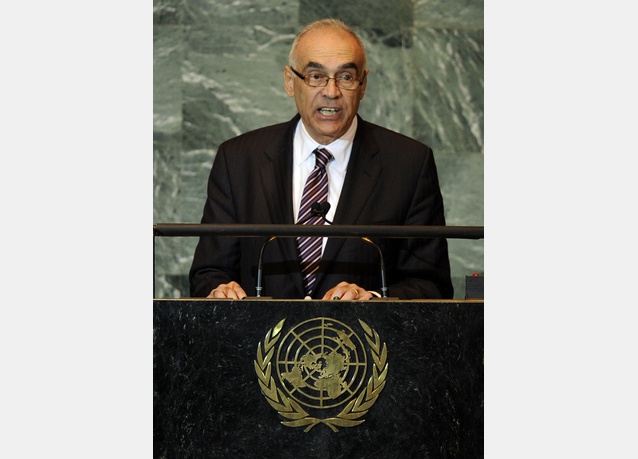MILAN: Although the financial crisis is winding down, the prospects for growth in the global economy are unlikely to pick up. This is, in part, inevitable. But it is also the result of poor coordination between governments as the world economy rebalances.
Prior to the crisis, American consumers, on average, either saved nothing or accumulated debt. That has now changed. With household wealth seriously damaged by the housing crash and other asset-price declines, pensions and retirement provisions are in disarray. Because asset prices will not reach pre-crisis levels anytime soon (that is, without inflating another bubble and risking renewed instability), household saving in the United States has risen to about 5% of disposable income, and probably will rise further.
This withdrawal of the US consumer is part (perhaps half) of the process of rebalancing the global economy. Restoring America’s savings-investment balance implies a reduction in global aggregate demand of around $800 billion.
To be sure, fiscal deficits and emergency measures in advanced economies and some major developing countries have cushioned the sharp decline, substituting in part for missing consumers. But this substitution cannot continue indefinitely. In advanced countries, governments will eventually be forced to reduce spending, and central banks will withdraw from emergency credit provisions and guarantees.
As a result, many believe that a “new normal of slower advanced-country growth is upon us. Despite a recovery in asset prices in many countries and the deceleration of negative growth, unemployment is high and rising. Risk spreads have declined from their mid-crisis highs, but credit in many sectors remains tight or barely available, while the financial sector is set to become more conservative – and is likely to be re-regulated with higher capital, reserve, and margin requirements.
And this is just the baseline scenario. Downside risks include fiscal destabilization resulting from a failure to rein in deficits, inflation and withdrawal of central bank autonomy, and loss of confidence in the dollar, which continues to be the reserve currency for the global economy.
Little wonder, then, that many knowledgeable analysts reasonably expect post-crisis growth in advanced countries to be lower, perhaps by 0.5 to 1%. A 1% slowdown in advanced-country growth translates into roughly $350 billion of missing aggregate demand every year, in addition to the shortfall because of rebalancing in the US.
If the slowdown in advanced countries persists, pre-crisis growth levels will not be achievable in the developing world either, owing to insufficient demand to absorb the implied increase in output. Of course, individual developing countries may be spared. But it is an unfortunate mathematical fact that not everyone can gain market share. If the advanced-country scenario is right, many developing countries will lose out and experience sharply diminished growth.
Prior to the crisis, many suspected that the mix of aggregate demand that was supporting high growth was unsustainable, though the problem perhaps seemed too hypothetical to compel collective action. Not anymore. But the collective action problem is no less daunting, and it requires urgent attention if the world’s growth aspirations are to be achieved.
The problem is all the more pressing because countries can achieve gains in market share not only through higher private-sector competitiveness, but also by means of protectionist measures. And, as we have seen in many countries’ efforts to ameliorate the crisis, the non-cooperative protectionist response is much more likely to be adopted – despite wide recognition that it is highly destructive – when aggregate demand is in short supply.
So what can be done to shore up global aggregate demand and growth prospects, while preserving the economic openness that has benefited major parts of the developing world so greatly in the past 30 years?
First, countries with current-account surpluses such as Germany, Japan and China must recognize that their own growth (and that of others) depends on reducing the global savings-investment imbalance, which will result in narrowing external deficits elsewhere. This needs to be done on a sustained basis following the withdrawal of extraordinary fiscal stimulus.
Second, everyone must recognize their stake in restoring balanced advanced-country growth as much and as soon as possible in order to counter the ongoing shortfall in aggregate demand. After all, advanced countries account for about two-thirds of global GDP, so slow growth in these countries will inevitably impede global growth and truncate the growth potential of much of the developing world. This challenge, however, is very complex because deleveraging and rebalancing cannot be completed overnight.
But key steps can and should be taken: restoration of fiscal balance in well-communicated plans, commitment to central bank autonomy and low inflation, and striking a thoughtful balance between under- and over-regulation of the financial sector. Externally, major trading partners and holders of advanced-country assets can support rebalancing by agreeing to avoid sudden and potentially destabilizing shifts in the composition of their balance sheets.
So, two crucial items must claim priority at the top of the world’s economic agenda in the months ahead. The first is re-regulation of advanced countries financial systems with a view to ensuring greater stability without impairing essential functions or unnecessarily elevating the cost of capital. The second is a set of understandings and commitments among the major advanced and developing countries to rebalance the global economy in order to restore aggregate demand and growth.
If that can be accomplished, the world will have taken a major step toward a relatively smooth, effective, and equitable global economic recovery.
Michael Spence is the 2001 Nobel Laureate in Economics, and Professor Emeritus, Stanford University. He chairs the Commission on Growth and Development. This commentary is published by DAILY NEWS EGYPT in collaboration with Project Syndicate (www.project-syndicate.org).


